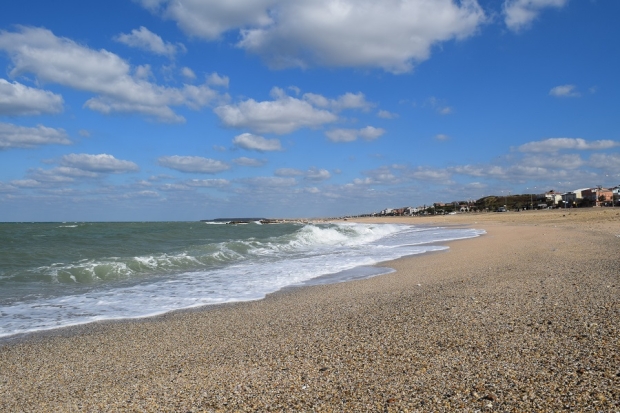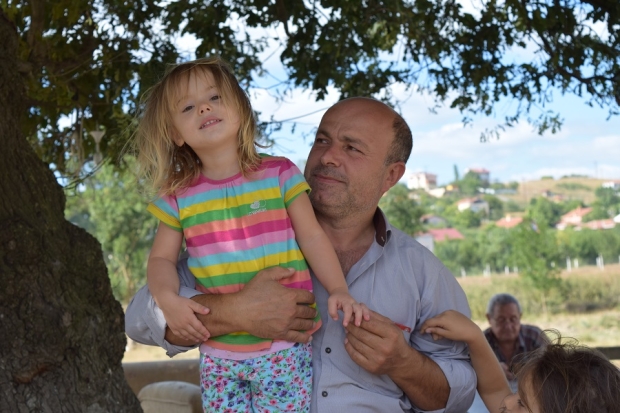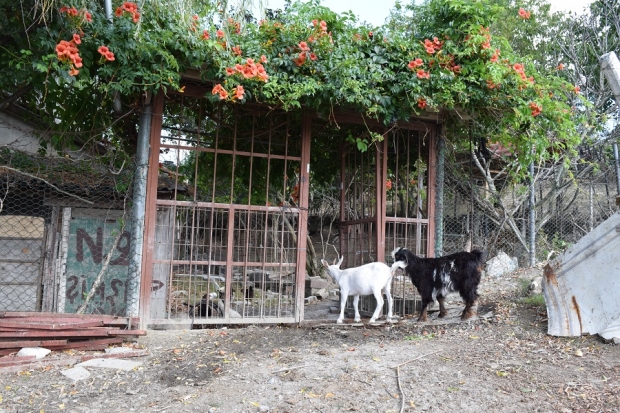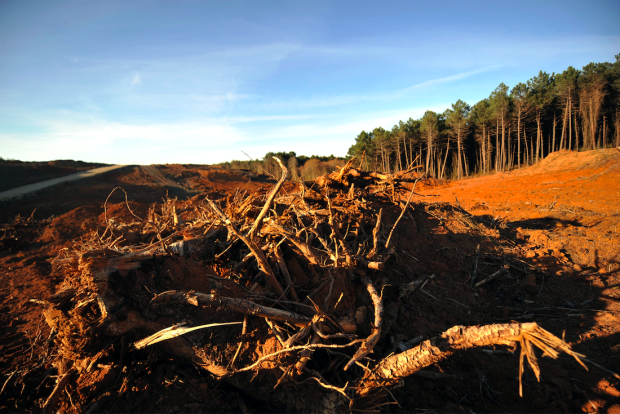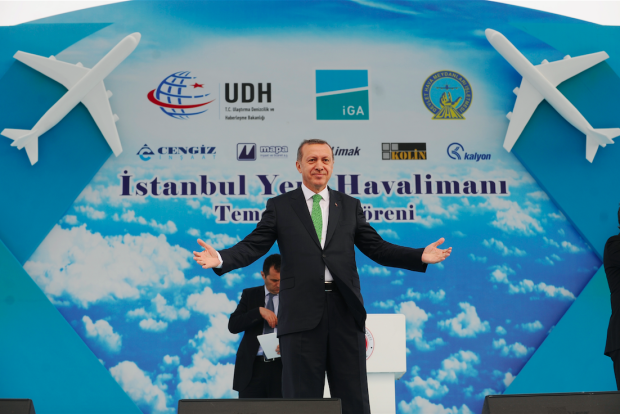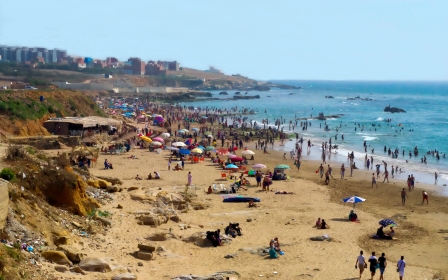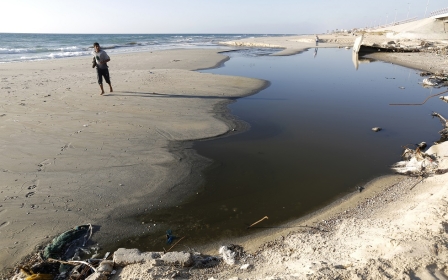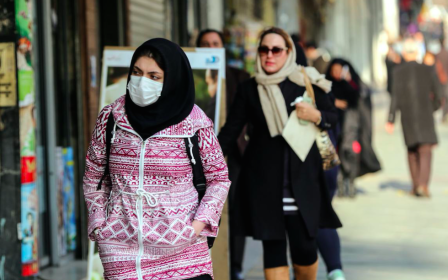Turkey's bid to build Europe's largest airport sparks fear and fury

ISTANBUL, Turkey – Nilgun Yildiz, a farmer in her late 40s, has never sunbathed on the beach. She has not learnt how to swim or even waded into the waters of the Black Sea just 10 kilometres from her house, but she is grateful for the swathes of pristine beach and sea on the fringes of northwest Istanbul.
For years, the long stretch of beach in the Karaburun neighbourhood has indirectly been providing her farming business with a major boost. Every weekend during the long Istanbul summer, thousands of people from the city flock here for a break from the city concrete and urban congestion.
On the way back, many stop by Yildiz’s stall, which she erects on the roadside to sell free-range chickens, eggs, cheese, vegetables and pickles. The family’s most popular product though is yoghurt made from buffalo milk, a local delicacy they have been perfecting for decades.
“We sell a lot to wholesalers. But it is this custom from holidaymakers that allows us to make a small profit. They are vital for our survival,” says Yildiz.
All of this, however, looks set to change. The fields where the buffalo roam and graze, as well as the beaches that pull in the weekend revellers, are soon to be overshadowed by the construction of what is set to be Europe’s largest airport, a mere five kilometres away.
Turkey in 2023 - world's 10th biggest economy
The government has pitched the project as a keystone of economic progress and as a crucial part of Turkey’s goals to become the world’s 10th biggest economy by 2023, the centennial of the founding of the republic.
By the time the first phase is completed in February 2018, it is expected the airport will process 90 million passengers annually, growing to more than 150 million passengers a year by the time it is fully operational in 2030.
For now, the airport has no official name and is simply referred to as the third airport, but that does not mean authorities do not have big plans for it. Since work began in June 2014, construction has carried on unimpeded despite a string of deadly attacks and the failed coup to overthrow the government last month.
At the moment, 17,500 workers are working at the site in shifts to make sure deadlines are met. The public is not allowed to come close to the site, but the size and scope of the project is clear for kilometres around and a large dust cloud hovers above the whole area.
The CEO of Istanbul Grand Airport (IGA), the firm leading the construction, announced last week that 30 percent of work on the first phase was complete. He said 2bn euros had been spent so far and there are plans to eventually hire 30,000 construction workers.
But for all the promised growth and prosperity, local residents have been up in arms fearing that the transportation hub will totally destroy their idyllic oasis just kilometres from the bustling streets of the Turkish metropolis.
'A slow drawn-out execution'
Yildiz says she simply cannot imagine being able to live like this anywhere else in or around Istanbul. There is simply not enough space or good employment opportunities for her parents, her children and grandchildren to all be able to get along.
“It is like a slow drawn-out execution. We know they will eventually come for our land. We know we won’t be able to continue with our lives in the same way. We can just hope and pray,” Yildiz says.
Yildiz’s husband, Murat, is also resigned to eventually having to give up his house and 3,000 square metres of farmland.
Murat expected the government to come for his land in the first wave of mandatory government purchases made in 2014, but his area was given a temporary reprieve.
“Do you think the developers are going to leave us in peace once the construction boom begins and the wealthy turn their eyes on us?” he asks. “We will resist until the very last moment, but I know it is something we can’t win in the end. Either the government or wealthy individuals will run us out of here eventually.”
Currently building permits are not being granted in the area as most of it is designated as farmland, yet this designation carries its own risk. Turkish law allows the government to expropriate farmland to use for public projects.
Previous experiences show that once such major projects come online, existing laws are gradually amended and regulations changed, allowing for an urban construction boom in the vicinity of the project.
The Yildiz family, like so many others nearby, says they fear they are destined to be the victims, not the beneficiaries of development.
“We are farmers. We have been doing this here for 18 years. Before we think of our children’s futures we have to think of their current situation. They will bankrupt us and make all of us starve while promising better futures for our children,” says Murat.
Environmental backlash
Environmentalists have also widely slammed the airport for taking away some of the last woodland near Istanbul and putting great pressure on the city’s water resources.
A pro-environmental group calling itself Istanbul’s Northern Forests Defence has warned against airport construction, saying it will damage the area’s ecosystem and have profound knock-on effects on animals, birds and bio-life throughout Istanbul.
Istanbul’s northern fringes are the only remaining forested areas that had been relatively untouched by urban expansion. Now the airport construction and the building of the Northern Marmara Motorway, which cuts through these forests and connects Thrace with Anatolia via Istanbul’s third bridge, is set to undermine all of that. It is set to open on 26 August.
The environmental group says the airport construction will do irreparable harm to the water basins, farmland and unique ecosystem in the vicinity, and has criticised the positive environmental impact report issued by a state agency.
The government says environmental damage will be kept to a minimum and that such projects are necessary to help the country progress, vowing to replant many trees in other areas for every tree that is uprooted, but campaigners say that authorities have time and again put profits and expansion ahead of the environment.
Opposition takes root
Until a few years ago, as Turkey was becoming a top tourist destination and performing well economically, there was little doubt that a third airport was needed in Istanbul where the city’s two existing airports were struggling to cope with expanding passenger numbers.
Does Turkey need a third airport?
But as instability took hold in Turkey with an increase in militant attacks in urban centres - including one on Istanbul’s Ataturk Airport in June – Turkish society has grown more polarised about the need for such a large project and there are worries that with increasing instability and a more authoritarian head of state, foreign visitor numbers are set to dwindle rapidly.
This has led to even more questions about the viability of the economic benefit-environmental cost equation.
None of this is on Mahmut’s mind though as he moodily looks out at the sea in Karaburun.
Mahmut works at a fish restaurant on the beachfront and moved to Karaburun seven years ago from Diyarbakir in southeast Turkey. He is certain the new airport will put an end to this chapter in his life.
“People come here for the clean air and to enjoy nature. Why would they come once this area becomes crowded,” says Mahmut who did not want to give his last name. “Even if the beach is left untouched, the airport will make the area too crowded and noisy for people looking for a break.”
Disheartened as he is about his immediate future, Mahmut says he will keep trying to look for the positives.
“Until seven years ago I had never seen the sea. Maybe I will experience something new again if the time comes to move on,” he says.
Others, however, are vowing to stay firm and say they will not be moved once the airport and its millions of passengers move in.
“I will resist until the last possible moment,” Murat says. “But we know we can’t win. There will be no place for us here in a few years. I don’t know what will happen after that.
“My wife’s grandparents migrated here from the Balkans and I came here from Malatya. Now we will be forced to migrate again.”
This article is available in French on Middle East Eye French edition.
New MEE newsletter: Jerusalem Dispatch
Sign up to get the latest insights and analysis on Israel-Palestine, alongside Turkey Unpacked and other MEE newsletters
Middle East Eye delivers independent and unrivalled coverage and analysis of the Middle East, North Africa and beyond. To learn more about republishing this content and the associated fees, please fill out this form. More about MEE can be found here.


